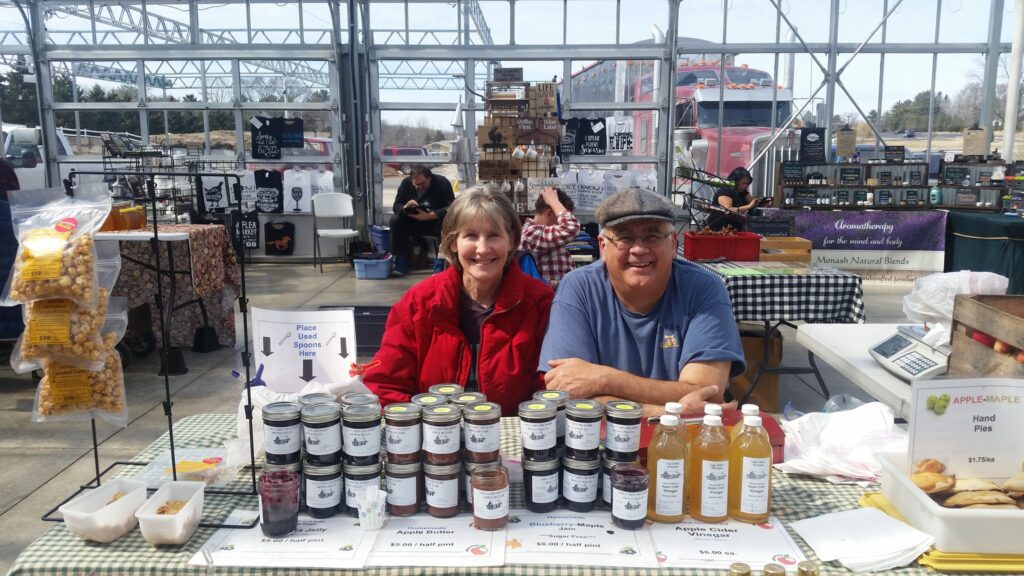Extension efforts are part of Midwest program to connect farms to schools
Deep in peak apple season, you can usually find Scott and Julie Overby, owners of Log Cabin Orchard in Plymouth, working in their nearly 40-year-old orchard to harvest and sell Wisconsin-grown apples. In early October each year they pick for a purpose: the Wisconsin Great Apple Crunch. On October 12 at lunchtime, millions of students, teachers, healthcare workers, patients, and government employees will crunch into a crisp, locally-grown apple and celebrate a decade of the Great Apple Crunch.

One of the Crunch’s main goals is to celebrate seasonal foods and to generate excitement around local foods and agriculture. Overby notes that students participating in the Crunch sample apple varieties that “taste better than the traditional Red Delicious they are used to receiving in lunches” and they get curious about the quality and origin of the foods they eat. To Overby, providing a high-quality, memorable experience around trying local apples is one of the best marketing tools he has.
This year Extension is managing the Apple Crunch through two of its Institutes: Health & Well-Being and Community Development, highlighting both the nutritional and business side of food production. Extension provided schools, institutions, and producers with marketing support, recipes, and activities in addition to education and solutions to boost local food systems.
The Crunch promotes farm-to-school and farm-to-institution sales, increases appetites for regionally and locally grown produce, and supports Wisconsin apple growers. For growers who provide the apples, the event marks the busiest point of the season and provides apple growers an opportunity to try out farm-to-school sales through a one-time event. Overby has provided apples for the Plymouth School District’s Great Apple Crunch since 2015, and sales for the one-day Crunch typically account for about 5% of his total annual sales.
Overby’s two main opportunities for sales come from farmers’ markets and pick-your-own apple events every Sunday. He says this can be challenging sometimes, as many more marketgoers and orchard visitors visit in fair weather. When fall rain and thunderstorms roll in, Overby sees a reduction in sales through his traditional outlets but says “the Crunch happens rain or shine.”
The Great Apple Crunch is about more than exposing children to fresh, local foods at a young age—it provides apple growers a connection to schools and institutions. “It gets your foot in the door with the schools, and even if it feels hard, you’re doing good by providing kids in the community with high-quality food.”
When schools and institutions purchase from their local orchards, they shorten the length of and increase the transparency of food supply chains. This keeps dollars circulating in the local economy and helps eaters connect with the people and places that produce their food.
Learn more about the Great Apple Crunch here and access resources for producers here.



